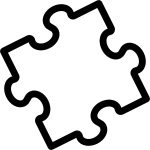Clinical Psychology & Neuropsychology
- Beth Lusby Ph.D.
817-428-9810
Welcome
Thank you for visiting our website.
Dr. Lusby is committed to providing outstanding psychological care to your family. Our focus is on assisting children, adolescents, and parents in navigating difficult times and finding solutions.
We are here to help!
817-428-9810.

If human beings are perceived as potentials rather than problems, as possessing strengths instead of weaknesses, as unlimited rather than dull and unresponsive, then they thrive and grow to their capabilities.
– Robert Conklin
About Us
Beth Lusby, Ph.D. has been licensed as a psychologist in Texas since 1998. In 2004, she opened Cornerstone Assessment and Guidance Center, LLC in Colleyville, Texas. Her practice provides clinical and neuropsychological services to children, adolescents, and families. Dr. Lusby graduated from the University of Colorado magna cum laude with a B.A. in psychology. She attended the University of Louisville, in Kentucky, where she received both a M.A. and Ph.D. in Clinical Psychology. After completing an APA approved pre-doctoral internship at the University of Texas Health Sciences Center, Houston, Dr. Lusby completed her post-doctoral work with a neuropsychology practice in Dallas (Pate Rehabilitation). During her time at Pate, Dr. Lusby was fortunate to serve in several positions including Director of Assessment and Director of Vocational Programs. She is a member of the National Academy of Neuropsychology and the Texas Psychological Association.
Frequently Asked Questions
Where do I start?
Finding psychological services can be very confusing. It’s understandable that you have many questions! If you’re just not sure what services your child needs, please give us a call. If we’re not the right place for you, we’ll be happy to help you find the services you need.
How Does a Neuropsychological Evaluation Differ From a School Psychological Assessment?
School assessments are usually performed to determine whether a child qualifies for special education programs or therapies. While many of the same tests are given in school and clinical settings, there are likely to be differences in the way that the tests are interpreted. It is rare for school evaluations to include measures of memory, executive functioning, and other neuropsychological skills. Further, at CAGC, we devote a great deal of time to each child. Generally, only one or two children are tested at CAGC each week. Your child is our focus.
What Is Assessed?
Our typical neuropsychological evaluation may assess these areas:
- General intellect
- Achievement skills, such as reading and math
- Executive skills, such as organization, planning, inhibition, and flexibility
- Attention
- Learning and memory
- Language
- Visual–spatial skills
- Motor coordination
- Behavioral and emotional functioning
- Social skills
Some abilities may be measured in more detail than others, depending on the child’s needs. A detailed developmental history and data from the child’s teacher will also be obtained (with your permission). Observing your child to understand his or her motivation, cooperation, and behavior is a very important part of the evaluation.
What Will the Results Tell Me About My Child?
By comparing your child’s test scores to scores of age peers, we can create a profile of your child’s strengths and weaknesses. The results help those involved in your child’s care in a number of ways. Testing can explain why your child is having school problems. For example, a child may have difficulty reading because of an attention problem, a language disorder, an auditory processing problem, or a reading disability. Testing also guides the pediatric neuropsychologist’s design of interventions to draw upon your child’s strengths. The results identify what skills to work on, as well as which strategies may help your child.
Testing can help detect the effects of developmental, neurological, and medical problems, such as epilepsy, autism, attention deficit hyperactivity disorder (ADHD), dyslexia, or a genetic disorder. Testing may be done to obtain a baseline against which to measure the outcome of treatment or the child’s development over time.
Different childhood disorders result in specific patterns of strengths and weaknesses. These profiles of abilities can help identify a child’s disorder and the brain areas that are involved. For example, testing can help differentiate between an attention deficit and depression or determine whether a language delay is due to a problem in producing speech, understanding or expressing language, social shyness, autism, or cognitive delay. We may work with your physician to combine results from medical tests, such as brain imaging or blood tests, to diagnose your child’s problem.
Most importantly, testing provides a better understanding of the child’s behavior and learning in school, at home, and in the community. The evaluation can guide teachers, therapists, and you to better help your child achieve his or her potential.
What Is Pediatric Neuropsychology?
Pediatric neuropsychology is a professional specialty concerned with learning and behavior in relationship to a child’s brain. A pediatric neuropsychologist is a licensed psychologist with expertise in how learning and behavior are associated with the development of brain structures and systems. Formal testing of abilities such as memory and language skills assesses brain functioning. The pediatric neuropsychologist conducts the evaluation, interprets the test results, and makes recommendations. The neuropsychologist may serve in a variety of different roles in the care of your child. Sometimes, the pediatric neuropsychologist is a case manager who follows the child over time to adjust recommendations to the child’s changing needs. She may also provide treatment, such as cognitive rehabilitation, behavior management, or psychotherapy. Often, the neuropsychologist will work closely with a physician to manage the child’s problems. Pediatric neuropsychologists work closely with schools to help them provide appropriate educational programs for the child.
What Should I Expect?
When you first arrive, please make yourself comfortable in our lobby. Dr. Lusby will be with you shortly (we know that your time is valuable and will strive to be ON TIME). On the first visit, we will review your child’s background and developmental history. Factors leading to your visit will be thoroughly discussed. In addition, we will be happy to answer any questions that you have about the services we offer. Together, we will develop a “plan of attack.” Typically, we follow several steps:
- When you initially call us, we will gather a bit of information to determine whether we are a good fit for your child’s needs.
- Our next step will be to schedule an initial meeting, usually for adults only. Whether you are seeking therapy or testing, the initial interview allows us to gather a detailed developmental history. (Also see: What should I bring to my first appointment?) In addition, we begin to work with parents to develop a plan to help your child. Next steps are determined in this session.
- If therapy is indicated, we will discuss how to discuss the session with your child and schedule an appointment.
- If testing is recommended, we will likely schedule several testing sessions. Testing involves paper and pencil tasks, hands-on activities, answering questions, and sometimes using a computer. Parents and teachers (with parental permission) will be asked to fill out questionnaires about the child’s development and behavior. The time required depends on the child’s age and the reason for the assessment.
- When testing is complete, a feedback session will be scheduled. This is a crucial meeting that allows us to tell you about your child’s testing results.
- A detailed written report of testing findings is always provided. Questions about the evaluation are always welcome!
Do You Take Insurance?
Dr. Lusby has chosen not to sign up for insurance panels. Thus, Cornerstone Assessment is not an “in-network” provider for any insurance company, but some insurance companies may provide “out of network” benefits. Clients will be provided with a receipt that documents the specific procedure codes and amount/fee of service provided which can then be submitted to the insurance carrier. Note that all fees for service are due at the time of the service. Payment for services is accepted by cash, check, or credit card.
Where are you Located?
Our address is: 1215 Hall Johnson Road, Suite 100, Colleyville TX, 76034 Our office building is located behind the offices of Dr. Keith Metzger, DDS. When you see Dr. Metzger’s office, turn in and follow the sign on the back fence to our office.
Click Here for Directions to our office.
What should I bring to my first appointment?
Please feel free to bring any information that you feel will help us to better understand your concerns regarding your child. In particular, be sure to bring the following:
- previous testing findings and/or testing reports
- report cards or notes from teachers
- examples of child’s work (e.g. art work, writing samples, etc.)
- medical reports (e.g. MRI report summary, hospital records, etc.)
- Background questionnaire (please print, fill out, and bring to the initial meeting)
How Much Does Testing Cost?
Please call our office to discuss testing prices. 817-428-9810
Who Does Your Testing?
Only Dr. Lusby administer testing. We do not utilize “technicians.” While the testing data is crucial, the clinical information gathered by a Licensed Psychologist is often equally important.
What should I expect on my first visit?
When you first arrive, please make yourself comfortable in our lobby. Dr. Lusby will be with you shortly (we know that your time is valuable and will strive to be ON TIME). On the first visit, we will review your child’s background and developmental history. The factors leading to an evaluation will be thoroughly discussed. In addition, we will be happy to answer any questions that you have about the services we offer. Together, we will develop a “plan of attack.”
How can I prepare my child for testing?
- Make sure your child has a good night’s sleep and a good breakfast before the testing.
- If your child wears glasses or a hearing aid or any other device, make sure to bring it.
- If your child has special language needs, please alert us to these.
- If your child is on stimulant medication, such as Ritalin, or other medication, we generally recommend that they take their medication as prescribed on the day of testing.
- Reassure a worried child that testing involves no “shots.”
- Your child will probably find the neuropsychological evaluation interesting, and the detailed information that is gathered will contribute to your child’s care.
What does my child need to bring to the evaluation?
- Children are invited to bring a “show-and-tell” item to share with Dr. Lusby. Older children and teens may wish to bring art work to share with the examiner.
- Snacks are not provided, but you are welcome to bring a snack for your child.
- Sometimes the office can be chilly. Please fell free to bring a jacket for your child.



